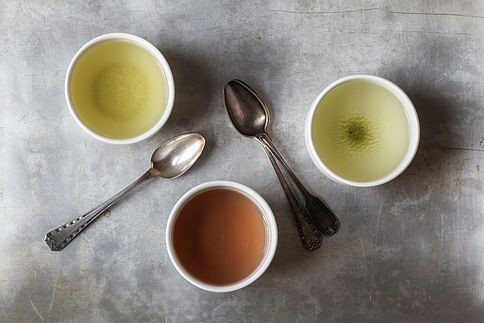
Dr. Richa Mittal
We all wonder about this at some point. As you age, your body has started changing and maybe you've noticed that the things you have been doing to maintain your weight and health are not working as well.
Is it possible to improve your metabolism?
So much of our metabolism and weight is determined by factors out of our control. Our brain (specifically a part called the hypothalamus) is in charge of making sure we are in a constant state of balance (or homeostasis).
Scientists are still studying the complex factors that go into this system that affect metabolism and consequently the disorders that follow (ex. metabolic syndrome, obesity, overweight, diabetes, high blood pressure, ultimately heart disease/stroke)
Since there is a combination of genetics and environmental factors at play, it is difficult to know what things we can actually do to prevent these serious health conditions.
So what else can we do beyond changing our diet? Below are details about some areas being explored
A fascinating area of research is the role of prebiotics, probiotics and even fecal transplant in metabolic disorders. The gut microbiota (Intestinal bacteria) is being found to be a strong environmental factor not only in the functioning of our immune system, but also in regulation of lipid metabolism, how insulin works (affecting sugar metabolism), and as a cause of overweight and obesity.
The jury is still out on which probiotics will be beneficial in the gut, but differences in the gut microbiome have been found between normal weight and overweight/obese individuals. We will need to stay tuned as more data comes out from studies in this area
Recently, there has been much talk about the benefits of fasting and intermittent fasting. According to a study (2007) in the journal Experimental and Clinical Endocrinology & Diabetes, a randomized controlled study of 46 people with type 2 diabetes showed significant weight loss, decrease in abdominal circumference, and decrease in blood pressure after fasting for one week (300 cal/day, Buchinger method).
Dr. Jason Fung's book, The Obesity Code, has helped shed light on the benefits of fasting using evidence based studies. His online program, the Intensive Dietary Management Program, has helped individuals reverse their diabetes through fasting protocols
There are several protocols on fasting (more on this in a future post) that have been found to be beneficial in affecting metabolism through changes in hormone levels.
If you are diabetic or have a significant medical condition and you wish to try one of these regimens, it is extremely important to do this with the input of your physician as you will need adjustments to your medications because of risk of low blood sugar.
Weight loss effects from compounds in tea are being studied and results have been mixed. Several compounds in tea like catechins, caffeine, and products of polyphenol oxidation play a role, and the specific mechanism on how different teas affect weight are being studied.
A recent study in May 2018 from China showed fermented teas (black, oolong) vs non fermented (green, white) may have more effect on weight by affecting carbohydrate digestion, the gut microbiome and lipid metabolism.
Given these findings, it is not unreasonable to add tea to your diet as it may very well aid in preventing weight gain. A recent study examined the effect of matcha green tea on a small group of women. They found increased fat burning in women after 30 minutes of brisk walking.
Of note, there are many supplements out there being touted for their benefit in improving metabolism. As the FDA does not tightly regulate this industry, many claims can be made by nutraceutical companies. Many supplements may not only be ineffective, but have dangerous side effects like liver failure. If you plan to use supplements, it is crucial that you run them by your doctor and also make sure they do not interact with any medications you are on.
Next week, I will give you practical tips that you can apply in your daily life on how to improve your metabolism.
Until then, be well!
The Content is not intended to be a substitute for professional medical advice, diagnosis, or treatment. Always seek the advice of your physician or other qualified health provider with any questions you may have regarding a medical condition.

